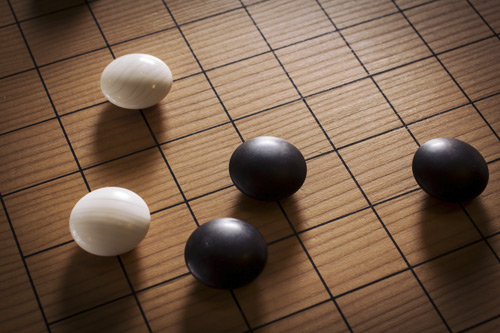
Google’s DeepMind AlphaGo programme has won the first two games against Go champion Lee Sedol from South Korea. (Courtesy: iStock/Peerayot)
By Michael Banks
It is a battle between man and machine, but one that has been ultimately won by the brute force of computation.
Yesterday as well as today, Google’s DeepMind AlphaGo program has made a breakthrough in artificial intelligence by defeating Lee Sedol – the current world champion from South Korea – at the game of Go.
Thought to originate in ancient China some 2500 years ago, Go involves two players alternately placing black and white stones on a 19 × 19 grid of lines in a bid to gain the upper hand by surrounding their opponent’s pieces with their own. A player typically has a choice of 200 moves, with apparently more possible positions in Go than atoms in the universe. Its fans include the physics Nobel laureate Philip Anderson, who is a certified first degree master of the game.
DeepMind was created in 2010 by UK artificial intelligence researcher Demis Hassabis and four years later was acquired by Google. Last October DeepMind’s AlphaGo program defeated the European Go champion Fan Hui, winning every game.
In a best of five games, yesterday the programme won the first match against Lee and did the same today, apparently leaving him “speechless” as well as 2-0 down. “AlphaGo played some beautiful creative moves in this game,” Hassabis Tweeted after the second match. “Mega-tense…”
The Korean now has to win the remaining three games to turn the contest around, with the final one being on Tuesday – a tall order indeed.
Guidelines
Show/hide formatting guidelines
this text was deletedwhere people live in harmony with nature and animals</q>
Some text